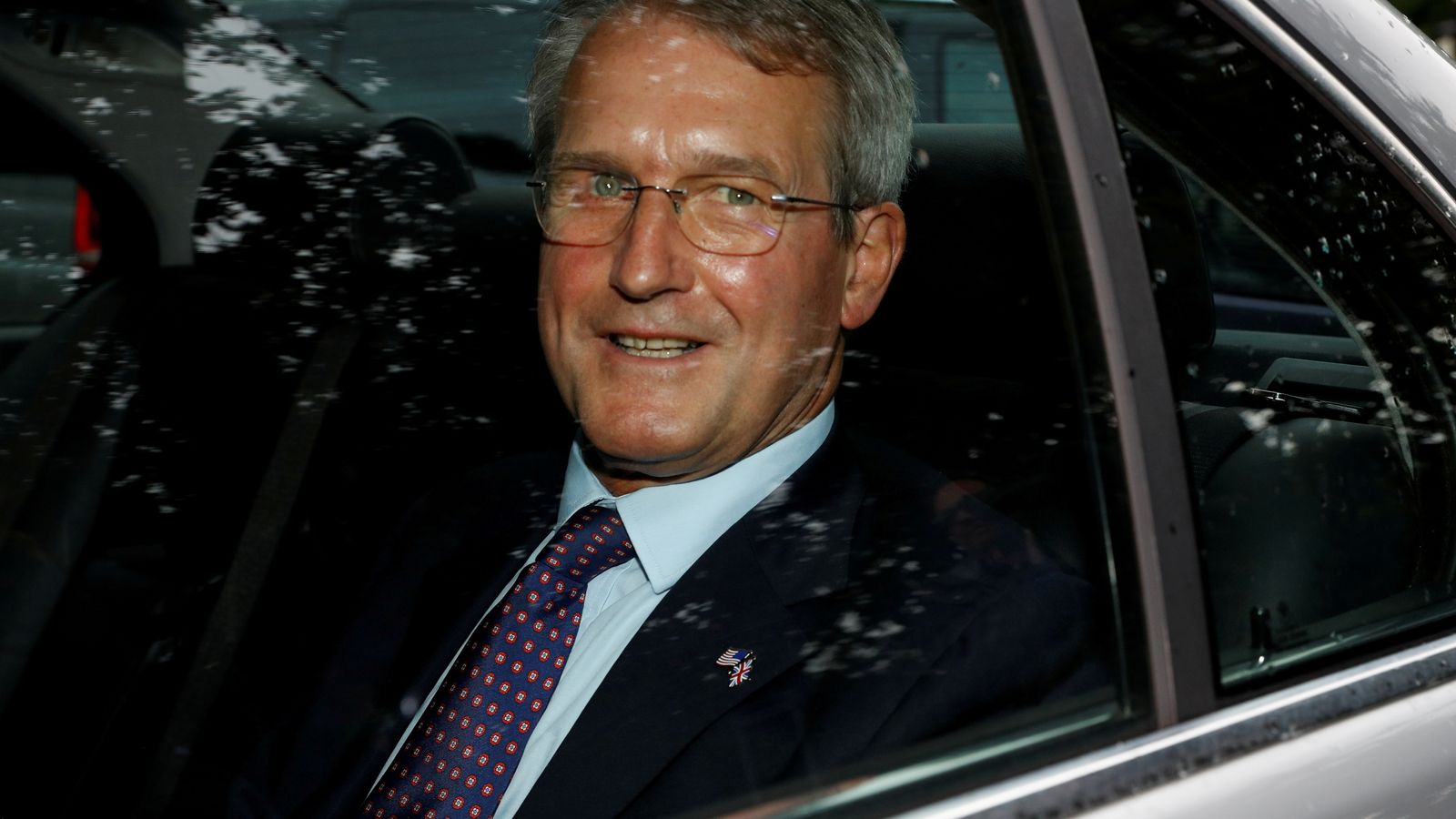This week, Boris Johnson tried to use brute political force to overturn conventions and norms that limit politicians’ power.
He has done it before, successfully proroguing parliament, rejecting the judgements of the Supreme Court, and ignoring a bullying judgement against the home secretary.
On those occasions his skill was taking political risks predecessors wouldn’t, knowing how far to push Tory MPs while maintaining their support and the sheer level of disinterest from the public in political machinations, however unconventional.
Please use Chrome browser for a more accessible video player
This week is significant because he tried again to upend the established system – wanting to scrap the system to police MPs while clearing Owen Paterson – but he failed.
Many of the calculations initially appeared correct – on Wednesday evening, he secured a parliamentary majority to block Mr Paterson’s suspension and crush the parliamentary commissioner for standards off the back of heavily whipped Tory votes.
However, he miscalculated the wider impact of railroading this through the Commons – the backlash amongst constituents, parts of the media and ultimately Tory MPs, whose distaste grew after the vote.
Overnight, the Parliamentary Conservative Party made clear they believe there ought, after all, to be limits on the prime minister’s ability to ride roughshod over the rules.
Owen Paterson: Who is the Conservative MP who’s quit after lobbying uproar?
Owen Paterson resigns: Conservative ex-minister quits as MP after row over House of Commons suspension
Owen Paterson: Government signals U-turn less than 24 hours after MPs block fellow Tory’s suspension
The mood was sulphurous.
Mr Paterson’s interview with Sky News, where he said he “wouldn’t hesitate” to act in the same manner “tomorrow”, is understood to have been relayed to a deeply unimpressed prime minister, hours before he conducted the U-turn.
Please use Chrome browser for a more accessible video player
The U-turn came shortly before 11am, and Mr Paterson’s resignation as an MP followed at 2.30pm.
Who is to blame?
There is an effort to pin blame on Mark Spencer, the chief whip.
The margin of victory was much tighter than anticipated yesterday, and some Tories believe the chief whip did not fully convey the depth of anger around the issue.
Please use Chrome browser for a more accessible video player
However, the plan was fully signed off by Mr Johnson, who was seen dining with Charles Moore, the former Telegraph editor and a strong supporter of Mr Paterson, on Tuesday night.
But most worryingly of all is that Tory MPs sensed a bigger backlash than Number 10 anticipated the moment the vote took place.
This comes days after the uproar over the sewage vote, which also wasn’t foreseen.
Mr Johnson is so valuable to his party because of his political instincts. Anything that suggests this is coming under question will worry Tory MPs.






















